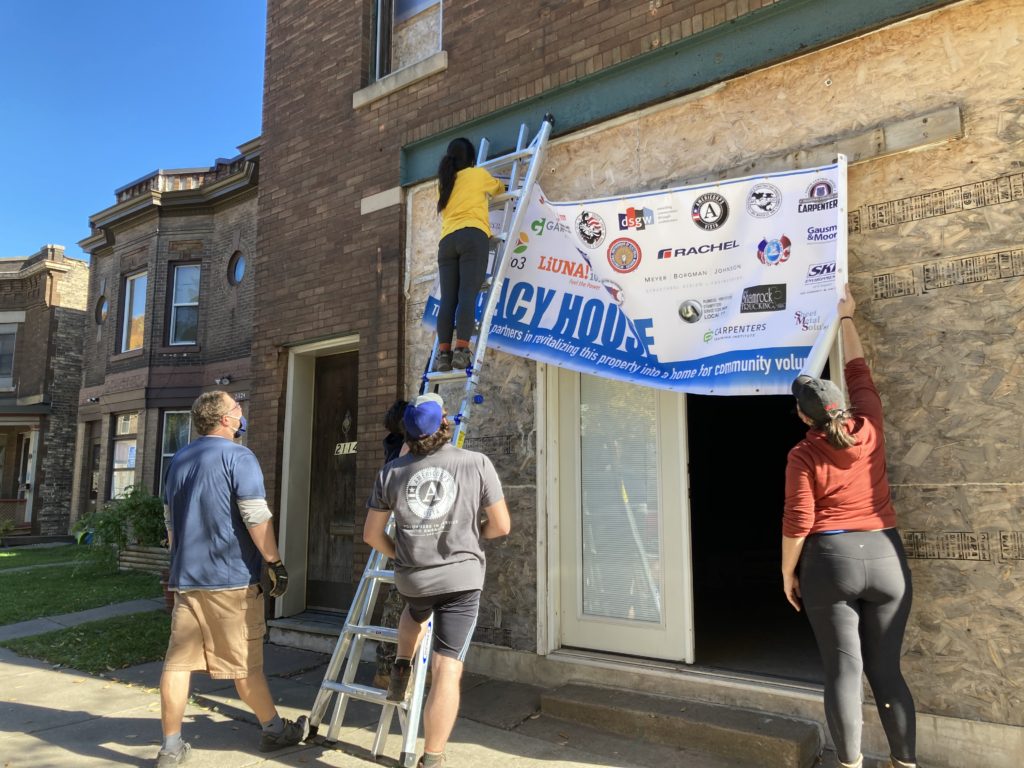
As an organization, Ecolibrium3’s mission is to inspire and lead change towards an equitable and sustainable future in our community. Since 2015, Ecolibrium3 has been committed to using the Jemez Principles for Democratic Organizing as a way to inform its community work. In February of this year, Eco3 released a recommitment to equity in a statement, in which Eco3 recognized the need to continually strive towards valuing the dignity of all people, designing programs to be inclusive and non-discriminatory, remaining transparent, and recognizing our own limits in cultural and community understanding.
An important part of committing to equity in our work is understanding what equity means, and how it differs from equality. According to the Race Equity and Inclusion Action Guide, from the Annie E. Casey Foundation, equality refers to the concept of ensuring all people have access to the same opportunities and resources. Equity refers to the concept of ensuring all people can enjoy those same opportunities and resources, even if that may mean giving more resources or opportunities to a certain group of people who have been disadvantaged. In other words, equality only ensures people are equal if they all start from the same position or have the same needs, while equity recognizes that certain people may have more needs because of systemic disadvantages, like racism, discrimination towards those of differing abilities, socioeconomic background, etc.
One of the areas where Ecolibrium3 has been making concerted efforts to make our programs more equitable and accessible to all, is the Eco3 VISTA program. Legacy House is a core component of this year’s effort to make the Eco3 VISTA program more accessible, regardless of ability or socioeconomic status. According to Independent Sector, a membership organization for non-profit professionals, the current estimated value of a volunteer hour in the United States is $27.20. However Eco3 VISTA members only make around $13,000 a year, or roughly $4.59 an hour. Therefore, socioeconomic background can determine the feasibility of doing a year of service. Among other basic living expenses, housing costs can be challenging for Eco3 VISTA members, especially since the average monthly rent in Duluth is $630 for a studio apartment and $1,200 for a 2 bedroom apartment.
Legacy House seeks to remove one of the financial barriers to AmeriCorps VISTA service, by providing up to five VISTA members with affordable housing. Legacy House, a previously condemned building located in the Lincoln Park neighborhood, is currently being renovated and will eventually have four bedrooms and one ADA compliant bedroom. According to a 2011 HUD report on accessibility in America’s housing stock, less than 1% of all units are equipped with features that would allow a wheelchair user to live fully independently. Therefore, Legacy House could also help remove another barrier to service for differently abled individuals, a lack of accessible housing.
As the Lincoln Park neighborhood is one of the most economically disadvantaged neighborhoods in Duluth, an affordable housing option could possibly even attract more people to serve in their own community. Eco3’s VISTA program has historically attracted members who are not from the community. In fact, out of this year’s cohort of 24 members, only 6 are from the state of Minnesota, and 2 are from Duluth.
Conversely, Legacy House could potentially even attract more diversity and talent to the program who would have otherwise been deterred by the financial strains of serving. Across the country, VISTA programs provide different levels of support for incoming members, many of whom relocate for service, including stipends to help cover the cost of housing and cooperative housing models allocated for members. With Legacy House, Ecolibrium3 would better be able to attract diverse talent, who could offer unique perspectives and expertise to help the Duluth community grow. Overall, Legacy House is an important effort of Ecolibrium3 to fulfill our mission of inspiring and leading change in our community towards a more sustainable and equitable future.